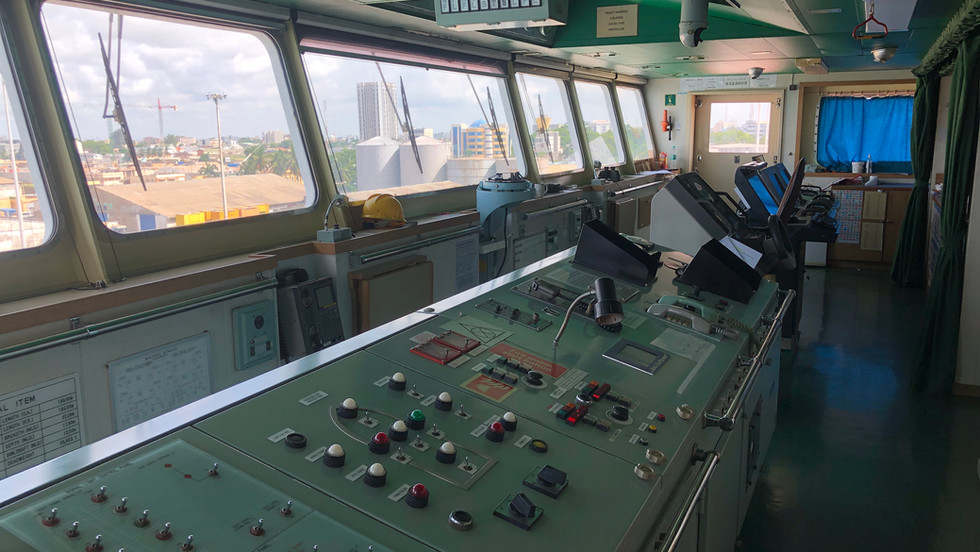What is Ship Management?
- Tenace offshores

- Jul 12, 2023
- 4 min read
Ship management refers to the comprehensive administration and operation of a ship on behalf of its owner. It is an essential aspect of the shipping industry across the globe and it involves a range of activities and responsibilities aimed at ensuring the smooth and efficient functioning of a vessel throughout its lifecycle. Ship management companies, also known as ship managers, are hired by ship owners to oversee the various aspects of ship operation.
Technical management involves the maintenance, repair, and overall upkeep of the ship, including its machinery, equipment, and hull. This includes managing inspections, dry-docking, crewing, and ensuring compliance with international maritime regulations and safety standards. Technical managers are responsible for ensuring that the ship remains seaworthy and operates efficiently.
Commercial management focuses on the business aspects of ship operation. This includes chartering, marketing, and negotiating contracts for the vessel's use. The ship manager may be responsible for securing cargo for the ship, arranging for the vessel's employment, and managing financial matters such as budgeting, accounting, and cost control.
Ship managers also handle crew management, including recruitment, training, and crew welfare. They ensure that the ship is properly manned by qualified seafarers who are knowledgeable about safety procedures and proficient in their respective roles.
The ship management company manages ships for the owner and pays him the yearly amount, which is settled between the owner and the ship management company.
Moreover, the ship’s owner signs a contract and leases the ship to the ship management company for a defined duration. The ship owner may continue with the same company or approach another if he is not satisfied with the performance of that company. The owner can ultimately lease the ship, or he can render some of the services such companies provide.
Hiring a ship management company can be advantageous for shipowners without prior experience in the field or those who might not have the time and capacity to undertake the task. It saves time and resources for the owner while also earning significant profits.
Ship Management Companies
Some of the biggest ship-management companies include the V-Group, Schulte Group, OSM group and Thome Group. These companies manage various assets, including tankers, gas carriers, passenger vessels, cargo ships, cruise vessels etc. Through efficient crew recruitment, they have built a substantial onshore team with relevant experience in providing technical services to meet the ship’s or fleet’s specific needs.
Their success is attributed to transparency, service quality provided to the clients, catering to their high standards and individual preferences.
The services offered can be divided into three categories- technical management, commercial management and crewing management. Many shipowners often outsource such services from companies based in Singapore, Connecticut, Rotterdam etc.
Managing ships is not an easy task because it includes several functions to be carried out before, during and after the vessel’s operation. The first and foremost thing is to get the ship approved. Many approvals need to be taken from different classification societies. However, the company can operate various types of vessels or concentrate on any one type. E.g. MSC (Mediterranean Shipping Corporation) deals with only container vessels, whereas companies like V ships and Anglo-Eastern manage all types of ships.
Suppose a management company wants to enter a new field by operating different vessels but is operating the vessel type for the first time. In that case, approval for operation is given for six months, and their performance is evaluated, which decides any further approval.
Services Provided
Following are the services that a ship management company is entitled to provide:
1. The company should supervise the maintenance of machinery onboard the ship. The process should also include different surveys and repair works. It should arrange and manage dry dockings and overlook the whole process. It has to arrange for sampling and testing of bunkers.
2. It should ensure that the ship complies with Flag State’s requirements and the classification society’s recommendations.
3. It should also comply with the ISM and ISPS Code.
4. The company should provide a good crew for manning the ship. It also undertakes crew training, career development, and everything related to its payrolls, insurance and other employee benefits.
5. It should arrange for the loading and unloading of the cargo.
6. It can hire the ship on behalf of the ship owner.
7. The company should negotiate the contracts for bunker and lube oil.
8. The company pays the expenses on behalf of the owner.
9. It should arrange the ship’s entry into the P&I (Protection and Indemnity) association.
10. The company also deals with various claims related to insurance, salvage etc.
11. The ship management company should arrange for the insurance concerning the ship.
12. The ship management company’s services include arrangements for providing victualling and stores for the crew.
Overall, ship management aims to optimize the ship's performance, minimize downtime, ensure regulatory compliance, and maximize profitability for the ship owner. It involves a wide range of tasks and requires expertise in various disciplines, including technical operations, maritime law, finance, and personnel management.
Frequently Asked Questions
1. What do you mean by ship management?
It includes the registration and management of ships or fleets owned by a company or an independent owner.
2. What is the responsibility of management companies?
Management firms have to oversee the ship repair, its maintenance, organize surveys, hire vessel crew and so on.
3. What is the role of shipping managers?
Shipping managers are responsible for overseeing packaging, verifying the contents of the cargo, ordering supplies and leading and managing the crew members.
4. How are ships managed?
All aspects of ships are managed by an independent company on behalf of the shipowner.
5. Which shipping company owns the largest fleet of ships?
A.P Moller Maersk operates a total of 708 vessels, making it the largest integrated shipping company in the world.











Comments